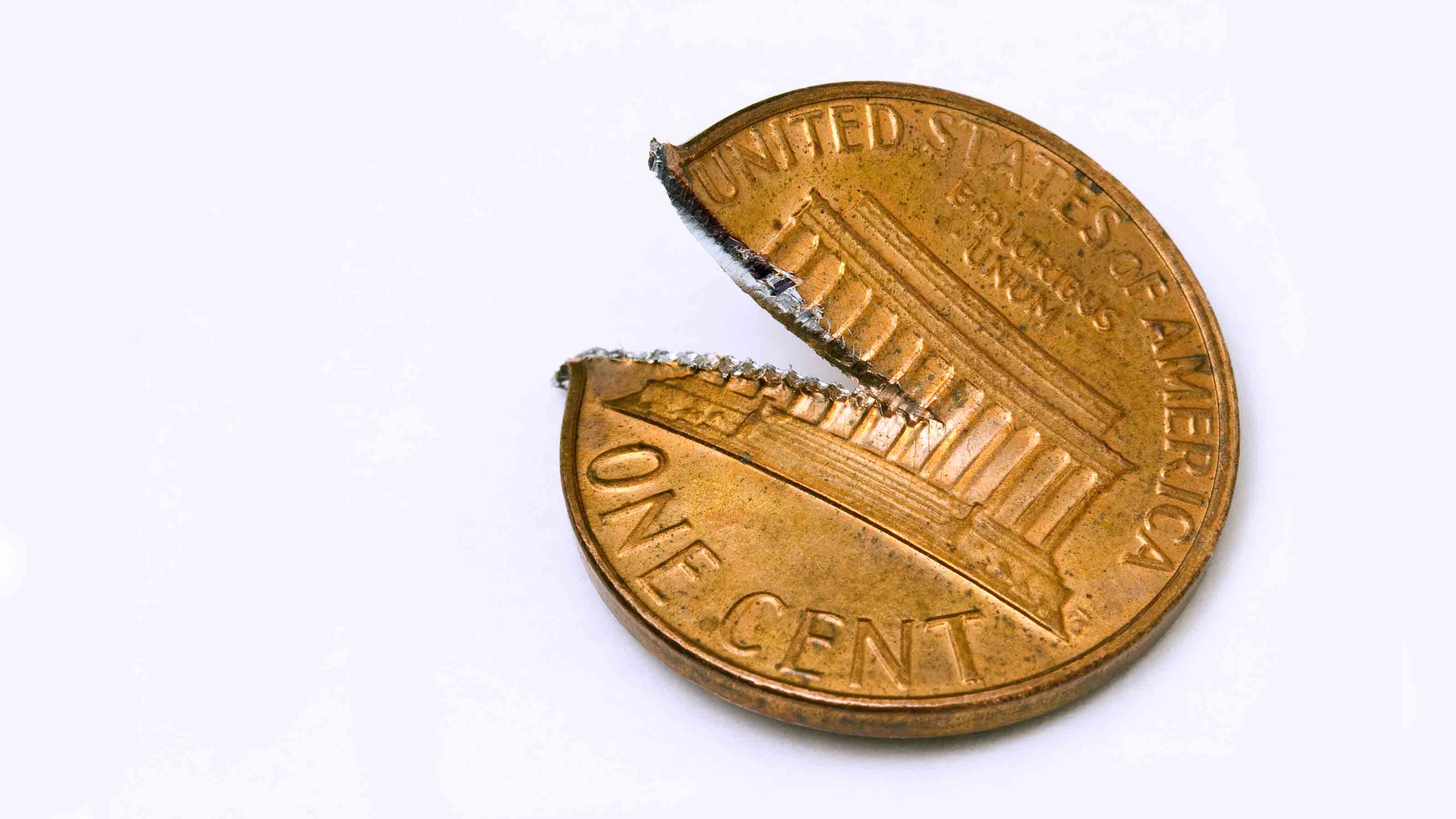How Your Brokerage Account Can Bypass Probate
A transfer on death account passes directly to beneficiaries you designate but lets you keep control over the account now.

Profit and prosper with the best of Kiplinger's advice on investing, taxes, retirement, personal finance and much more. Delivered daily. Enter your email in the box and click Sign Me Up.
You are now subscribed
Your newsletter sign-up was successful
Want to add more newsletters?
I need to designate a beneficiary for my brokerage account. Is a transfer on death account a better option than adding a joint owner to my account or including the account in my will?
Life insurance, IRAs, 401(k) plans and other retirement accounts pass directly to the beneficiaries you designate outside of your will. Brokerage accounts, on the other hand, generally pass to your beneficiaries through your will and must go through probate first, which can be time-consuming, public and expensive in some states. A transfer on death (TOD) registration is a way to designate beneficiaries for your brokerage account so the money will pass directly to them and avoid probate.
If you add a joint owner, that person will inherit the account outside of probate but can also change the investments and access the money while you’re alive. Joint accounts are also subject to the claims of both owners’ creditors. With a TOD, you maintain total control over the account and can change the beneficiary designation at any time.
From just $107.88 $24.99 for Kiplinger Personal Finance
Become a smarter, better informed investor. Subscribe from just $107.88 $24.99, plus get up to 4 Special Issues

Sign up for Kiplinger’s Free Newsletters
Profit and prosper with the best of expert advice on investing, taxes, retirement, personal finance and more - straight to your e-mail.
Profit and prosper with the best of expert advice - straight to your e-mail.
A TOD makes it very clear who inherits the account, rather than the account becoming one of many assets passed through your will. “It can avoid disputes,” says Gerri Walsh, senior vice president of investor education for Finra, an independent regulator for securities firms. “If you have the account set up with a designated beneficiary, that trumps whatever is in the will.”
If you want to split your estate among several beneficiaries, you may want to transfer the account through your will instead. Say you have three children and want to leave them equal shares of your estate. You could make one the TOD beneficiary of your brokerage account and leave comparable amounts of money to the other children. But if the brokerage account increases or decreases in value before you die, that child could end up inheriting a very different amount than the siblings.
With a will, on the other hand, you can split up the total assets equally. If you have more complicated wishes – such as if you want your heirs to use the money for a particular purpose or not to receive the funds until a certain time – you may want to set up a trust instead, says Eleanor Blayney, a certified financial planner and consumer advocate for the CFP Board. For more information, see Putting Your Trust in Trusts.
Contact your brokerage firm if you’d like to set up a TOD designation for your account. Most states have similar TOD rules (Louisiana and Texas do not offer this option). If you move to another state, ask your brokerage firm if you need to make any changes. For more information about TOD designations and other ways to transfer your brokerage account to your beneficiaries, see Finra’s investor alert Plan for Transition: What You Should Know About the Transfer of Brokerage Account Assets on Death. For more information about estate planning options, see 8 Smart Estate Planning Steps to Die the Right Way.
Profit and prosper with the best of Kiplinger's advice on investing, taxes, retirement, personal finance and much more. Delivered daily. Enter your email in the box and click Sign Me Up.

As the "Ask Kim" columnist for Kiplinger's Personal Finance, Lankford receives hundreds of personal finance questions from readers every month. She is the author of Rescue Your Financial Life (McGraw-Hill, 2003), The Insurance Maze: How You Can Save Money on Insurance -- and Still Get the Coverage You Need (Kaplan, 2006), Kiplinger's Ask Kim for Money Smart Solutions (Kaplan, 2007) and The Kiplinger/BBB Personal Finance Guide for Military Families. She is frequently featured as a financial expert on television and radio, including NBC's Today Show, CNN, CNBC and National Public Radio.
-
 Why Some Michigan Tax Refunds Are Taking Longer Than Usual This Year
Why Some Michigan Tax Refunds Are Taking Longer Than Usual This YearState Taxes If your Michigan tax refund hasn’t arrived, you’re not alone. Here’s what "pending manual review" means and how to verify your identity if needed.
-
 If You'd Put $1,000 Into Caterpillar Stock 20 Years Ago, Here's What You'd Have Today
If You'd Put $1,000 Into Caterpillar Stock 20 Years Ago, Here's What You'd Have TodayCaterpillar stock has been a remarkably resilient market beater for a very long time.
-
 Good Stock Picking Gives This Primecap Odyssey Fund a Lift
Good Stock Picking Gives This Primecap Odyssey Fund a LiftOutsize exposure to an outperforming tech stock and a pair of drugmakers have boosted recent returns for the Primecap Odyssey Growth Fund.
-
 5 Quick and Dirty Questions to Pick a Financial Adviser
5 Quick and Dirty Questions to Pick a Financial AdviserFinancial Advisers Yes, you can boil a complicated vetting process down to just five quick questions. Or you could dig deeper. The choice is yours.
-
 How the Infrastructure Bill Could Change Crypto
How the Infrastructure Bill Could Change Cryptocryptocurrency Cryptocurrency's path to legitimacy runs through Washington, but it's an opportunity dressed as a threat.
-
 Penny Stocks: Why You Should Always Stay Away
Penny Stocks: Why You Should Always Stay AwayScams With the exception of some large foreign firms, investors should generally avoid stocks that trade over-the-counter.
-
 Check Your Financial Adviser Now (and Every Year) or Regret It Later
Check Your Financial Adviser Now (and Every Year) or Regret It Laterwealth management Fewer than 10% of investors use such free background checks as Investor.gov, BrokerCheck or IAPD to check their financial advisers’ backgrounds. These online tools are easy to use and full of important information, so get clicking.
-
 What Are the Duties for Financial Powers of Attorney?
What Are the Duties for Financial Powers of Attorney?retirement I just got appointed agent under a financial power of attorney. What do I need to do next?
-
 The Coronavirus at Work: Your Legal Questions Answered
The Coronavirus at Work: Your Legal Questions Answeredbusiness What are your rights and responsibilities, as a worker or a business owner? A pair of lawyers who specialize in employment law weigh in with some practical advice.
-
 Credit Report Error? They All Matter
Credit Report Error? They All Mattercredit & debt Don't dismiss a minor error. It could be the sign of something more serious.
-
 Insurance for a Learning Driver
Insurance for a Learning Driverinsurance Adding a teen driver to your plan will raise premiums, but there are things you can do to help reduce them.